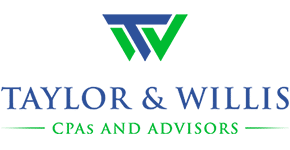The average small business owner spends more than 20 hours a week managing their business—and that doesn’t include the time spent working on marketing and sales. There are countless other things that go into running a business that you simply don’t have the time or expertise to do. It’s not just the financial side of things that you need to be concerned about—you also need to be aware of the tax implications of your business. If you’re not sure how to do this, you may be putting your business at risk of a large tax bill.
There are many different reasons why your small business should consider hiring a CPA, and here are ten of them:
1. You need a licensed financial professional to work on your business’ financial issues.
A CPA is licensed by the state to ensure their competency. This license also ensures that as a professional CPA, they are up to date on financial issues and state/federal regulations and have the highest ethical standards.
2. You will need a professional accounting system for your business set up to organize and easily access all your financial information.
CPAs have the requisite knowledge and skills to apply the latest innovations in technology designed specifically for accounting, such as software that enables quick statements and reports, new filing processes, as well, as providing quick and easy access to your business’ financial information.

3. You can get greater, in-depth, financial insight into your business’ finances.
A CPA will become familiar with and has the ability to monitor your total business assets, including the complete ledger balance and its detailed credits, debits, profits, and losses. CPAs are in a position to provide advice on how to keep your monetary resources up or improve them.
4. You will need full financial statements for your investors, creditors, and your bank.
A CPA has the professional training to prepare complete financial statements and to ensure those reports adhere to an accepted accounting standard. The GAAP (Generally Accepted Accounting Principles) includes revenue recognition, balance sheet classification and materiality.
5. You need a greater understanding of your business’ financial statements.
A CPA can act as an advisor and perform reviews on key financial reports that your business will rely upon to make other important decisions.
6. You need someone to review your tax information and who will ensure your taxes are filed properly.
In order to maintain their professional licensure, CPAs are required to maintain an up to date status on appropriate tax law knowledge for the businesses they serve. They also have the ability to verify IRS and other compliance for you which will ward off taxation troubles. CPAs will also have appropriate knowledge of various tax planning opportunities to help your business properly minimize its tax liability.

7. You will have a tax audit.
CPAs have the professional credentials to represent their business clients on cases involving audits, payment/collection issues, and appeals. They also may be instrumental in helping clients avoid these situations by giving their professional guidance and ensuring all appropriate paperwork and information is filed correctly and in a timely manner.
8. You have payroll to manage and need to make sure payroll taxes are properly paid.
As part of their profession, CPAs must be knowledgeable about payroll accounting systems. They have the expertise to ensure that payroll tax obligations are correctly met, and CPAs will guide you throughout the process.
9. You need a business advisor as you seek to grow and invest in your business.
CPAs can assist with appraising the viability of future projects with profitability, gain and loss forecasts. The expertise of a CPA can be instrumental in preparing future business proposals and plans that will grow your company. CPAs will often have professional experience in similar business organizations to yours, which will provide worthwhile business experience advice for your business.
10. You want to plan for and grow your business.
Because of the respect that they receive in the business community, CPAs often have the ability to offer valuable professional networking contacts that can help you easily organically grow your business. Your CPA may have similar clients that can be utilized as relevant contacts that may be referred to other clients or added to your professional network of contacts.
CPAs can be integral to your small business — not only when you’re starting out, but also when you’re trying to keep your business afloat. While many small businesses attempt to do their own taxes or their own bookkeeping, a CPA could actually save them time and money. Hiring one, whether you’re just starting a new business or have been running a business for years, can help you make difficult financial decisions and help you plan for the future of your business.











